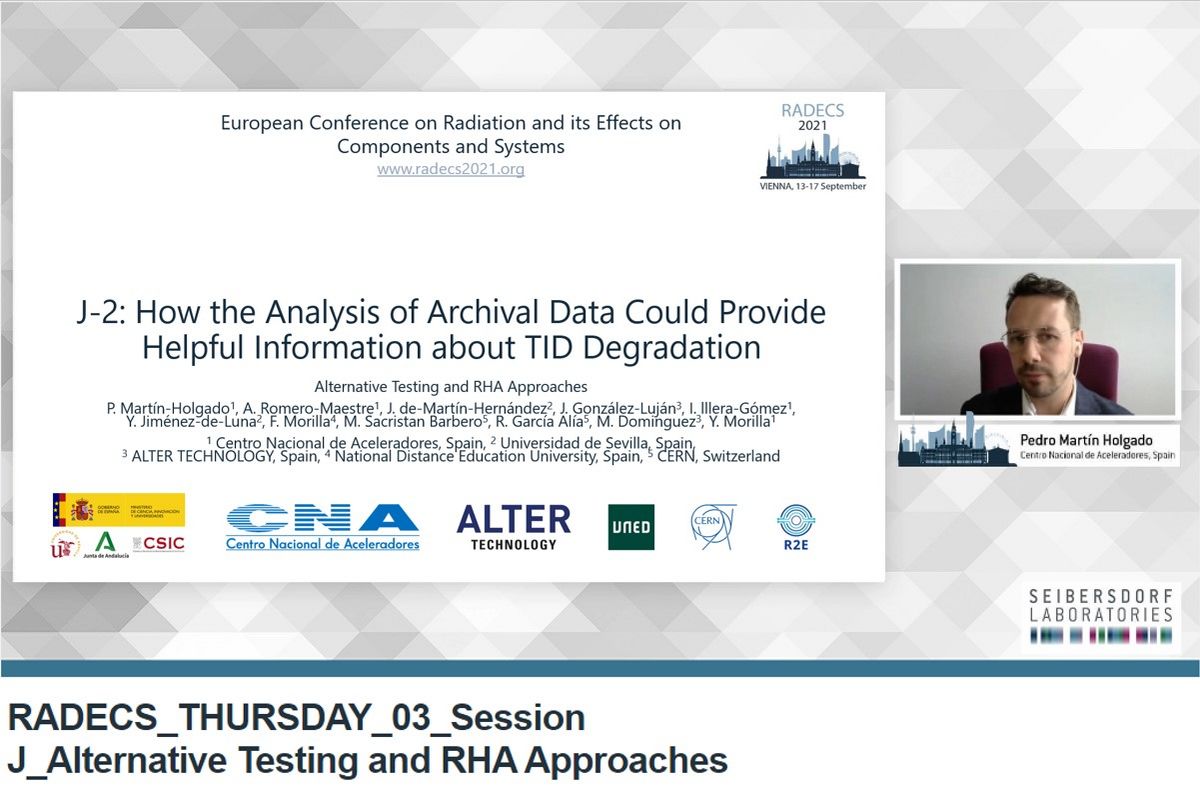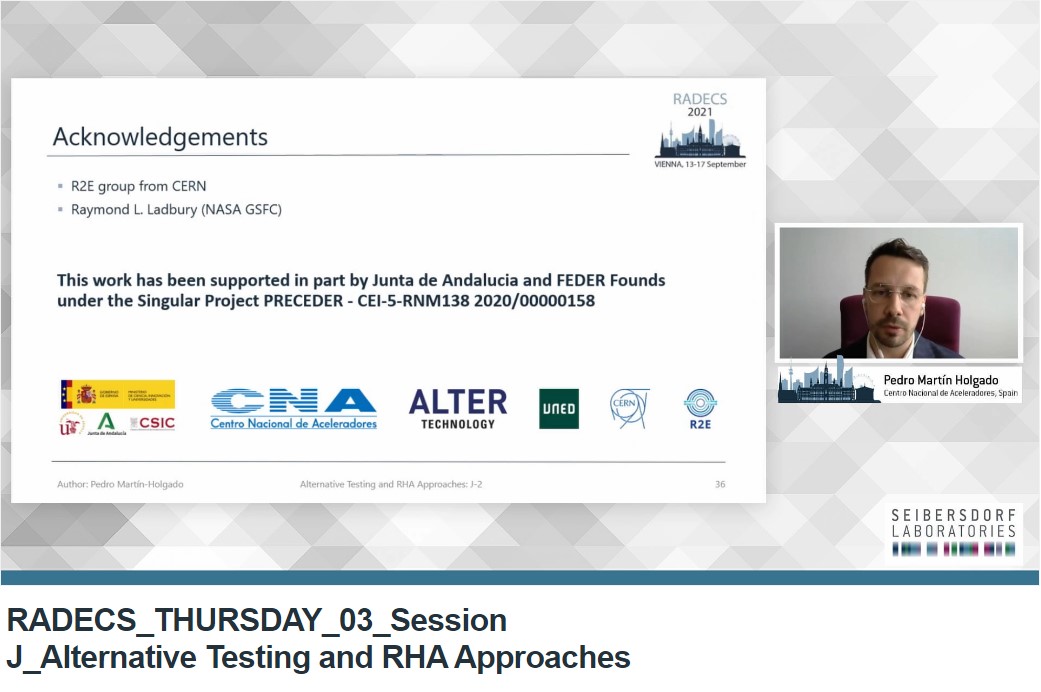The paper HOW THE ANALYSIS OF ARCHIVAL DATA COULD PROVIDE USEFUL INFORMATION ABOUT TID DEGRADATION within the framework of the PRECEDER project was presented at last RADECS2021 from 13th to 17th September 2021.
Alter Technology participated with the Centro Nacional de Aceleradores (CNA), UNED and CERN .
Pedro Martín-Holgado, Amor Romero-Maestre, José de-Martín-Hernández, José J. González-Luján, Iván Illera-Gómez, Yolanda Jiménez-de-Luna, Fernando Morilla, Mario Sacristán Barbero, Rubén García Alia, Manuel Domínguez, and Yolanda Morilla.
A critical step of Radiation Hardness Assurance (RHA) for space systems is given by the parts selection in accordance with the observed (or estimated) radiation effects.
Although radiation testing is the most decisive way of studying the radiation degradation of electronic components, the increasing use of Commercial Off-The-Shelf (COTS) devices and the challenges posed by NewSpace are pushing the need of finding new approaches to assess the risk associated to the radiation environments. This work tries to evaluate if valuable information might be extracted from archival data to carry out this assessment despite of the well known and dramatic lot-to-lot, or even part-to-part, variation for some technologies and the impact of the different test conditions, such as the dose rate in Enhanced Low Dose Rate Sensitivity (ELDRS). A new radiation database is briefly introduced, and some statistical approaches are cited, apart from the analysis herein followed.
To finish, a first analysis on three families of bipolar transistors is presented together with the independent results from an external report, with a good agreement between the experimental results and the expected ones.
Related News:
Machine learning to predict the behaviour of untested electronic components
Predicción del Comportamiento Eléctrico de Dispositivos Electrónicos bajo Radiación (PRECEDER)
Machine learning para predecir el comportamiento de componentes electrónicos no testeados
Ensayando dispositivos electrónicos de uso espacial en Sevilla

